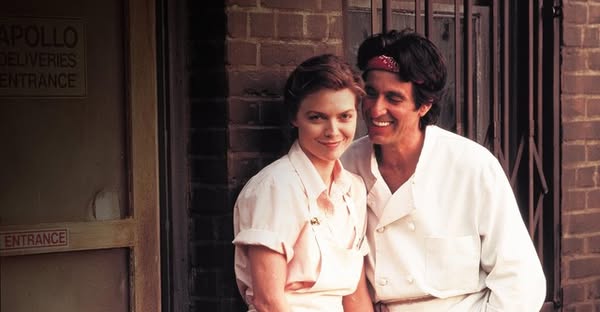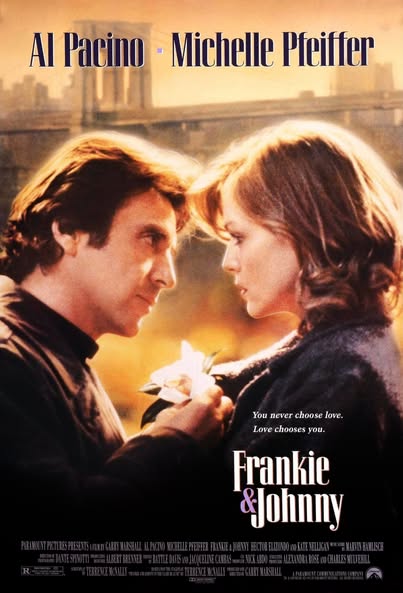Frankie and Johnny (1991)

Frankie and Johnny is a 1991 romantic drama film directed by Garry Marshall, starring Michelle Pfeiffer and Al Pacino. Based on the 1987 play Frankie and Johnny in the Clair de Lune by Terrence McNally, the film explores themes of love, redemption, and the complexities of human relationships.
The story centers around Frankie (Pfeiffer), a waitress at a New York diner who is emotionally guarded and wary of romantic entanglements, having been hurt in the past. Johnny (Pacino) is a recently released convict who starts working at the diner and quickly becomes infatuated with Frankie. Despite his charm and persistence, Frankie is reluctant to let him into her life, fearing vulnerability and the potential for heartbreak.

As the film unfolds over the course of a single night, the two characters engage in candid conversations about their pasts, desires, and fears. Their interactions reveal deep emotional scars and the struggle for connection. Johnny’s earnestness and enthusiasm contrast with Frankie’s cynicism, creating a dynamic tension that drives the narrative.
The performances by Pfeiffer and Pacino are notable for their depth and chemistry. Pfeiffer captures Frankie’s complexity, portraying both her strength and vulnerability, while Pacino brings Johnny’s charm and sincerity to life. The film’s dialogue, adapted from the stage play, is rich with wit and poignancy, emphasizing the characters’ emotional journeys.

Frankie and Johnny explores the themes of second chances and the transformative power of love. It highlights the challenges of overcoming past trauma and the importance of opening oneself up to new experiences.
Though it received mixed reviews upon release, the film has been appreciated for its character-driven narrative and the performances of its leads. It remains a touching exploration of love and the human condition.

In conclusion, Frankie and Johnny is a heartfelt romantic drama that delves into the complexities of relationships and the struggle for connection. With strong performances and a poignant story, it continues to resonate with audiences, emphasizing the importance of vulnerability and the possibility of redemption in love.











